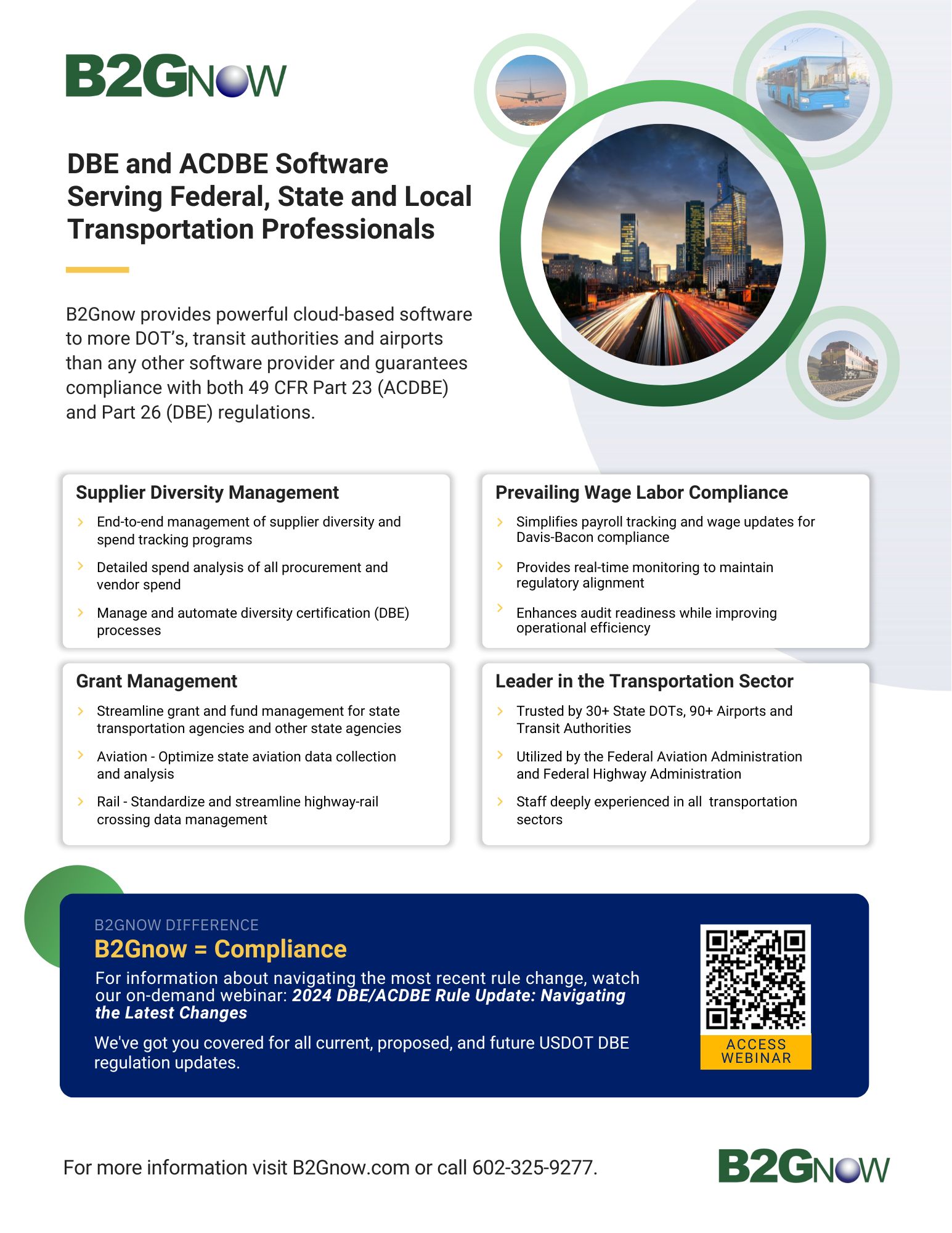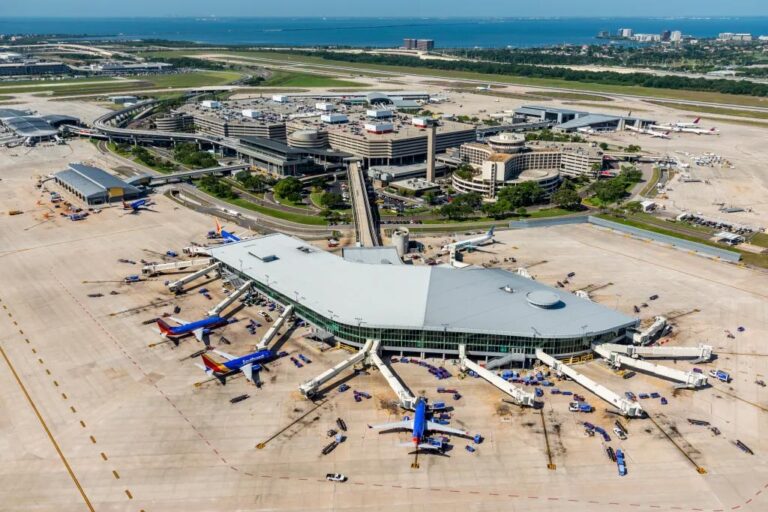
DBE and ACDBE Compliance Made Simple
Struggling to seamlessly track DBE participation on construction contracts down ten tiers deep, effortlessly collect utilization plans and track bidders, and find a better way to capture and report sub-recipient dollars? We’ve got you covered.
Generate the Uniform Report with the Click of a Button:
Speak with an Expert
B2Gnow’s DBE Compliance and Prevailing Wage Labor Compliance Software has your organization covered for all current, proposed, and future DBE and ACDBE regulation updates. We’re trusted by over 400 state, local and educational organizations, we’re standing by, ready to get you onboarded and in compliance, so you can seamlessly automate, manage, track and report on the requirements of your DBE and ACDBE programs.
Complete the form to speak with a team member and learn more.
DBE Frequently Asked Questions
DBE programs assist small businesses owned and operated by socially and economically disadvantaged individuals by requiring that a specific percentage of government funds, depending on the state or local government funding the project, be allocated to work performed by DBEs. To remain compliant, the owners and contractors must ensure that certified DBEs are retained to perform commercially useful functions to satisfy at least the required percentage throughout the contract’s life. To be in DBE compliance, organizations must set overall DBE goals or show that they used good faith efforts to meet annually. To be in DBE compliance, they must also meet all requirements for prompt payment, site reviews, reporting, and all requirements outlined in the USDOT’s 49 CFR parts 26 and 23. Supplier diversity management software, like B2Gnow, helps government DBE compliance specialists with contract compliance.
To be certified as a DBE, the firm must be “for profit”, with at least 51% of the enterprise owned by one or more US Citizens or legal residents who are socially and economically disadvantaged individuals and who can also prove that they “control” their business as defined in the 49 CFR part 26 Subpart D. Personal net worth must not exceed $1.32 million for the qualifying owner. The small business’ annual gross income cannot exceed the SBA size requirements for the type of work they seek certification.
Additionally, there is an overall DBE size limit of $28.48 million. The eligible business owner must hold the highest executive office, manage day-to-day operations, and have experience in the firm’s primary business activity.
An eligible small business wanting to apply for DBE certification must apply at the state level through the applicable State Department of Transportation, State DBE Liaison, certification officers, or local partner certifying agency.
The role of the DBE program in government contracting is to create an environment where small businesses owned and controlled by socially, and economically disadvantaged individuals are granted a fair opportunity to compete for federally funded transportation contracts.
An organization must keep accurate records regarding federally funded contracting opportunities available to firms. This data is submitted to the USDOT via the Uniform Report. This annual or bi-annual report (depending upon the Operating Administration to which the report is submitted) includes the name and address of the recipient along with their overall DBE goal, awards and commitments made during the reporting period, breakdown by ethnicity and gender of contracts awarded to DBEs for the period, payments and ongoing contracts, as well as actual payments on contracts completed during the reporting period.
Setting a contract goal requires several items, including a detailed cost estimate of the work to be performed or goods purchased, identifying your marketplace, and determining the availability of both DBEs and non-DBEs in that marketplace. Once an organization has determined metrics, it can mathematically calculate a contract goal that is fundamentally sound and accurate. While some organizations calculate goals on paper or spreadsheets spreadsheet, others use an online system like B2Gnow to assist in creating legally defensible goals which ensure that small and disadvantaged firms have full and fair opportunities to compete.
DBE compliance is monitored on many levels. Agencies monitor bids that are received to ensure that prime contractors will meet contract goals. Primes confirm that all firms are certified and report payments made. Recipients also make sure payments are submitted and follow up with onsite visits to monitor work, ensuring compliance with DBE requirements.
Non-compliance consequences can be steep. When a DBE does not perform a commercially useful function, an agency could lose federal funding, and it could disqualify or otherwise adversely affect a contractor’s bidding status. Additionally, all parties involved could be subject to governmental investigations, substantial monetary penalties, and even jail time.
Failure to follow DBE compliance procedures could disqualify or adversely affect a contractor’s bidding status.
DBE compliance enables small businesses owned by socially and economically disadvantaged individuals greater contracting opportunities worth billions of dollars issued at the state and local level through federally-funded infrastructure projects. Monitoring DBE compliance ensures that the DBE program will effectively meet goals as intended.
The Industry Leader
Numbers don’t lie, and neither does our legacy. As industry pioneers, we’ve transformed supplier diversity and grant management compliance with unrivaled software solutions, setting the standards that others follow.
-
0M+
VENDORS
-
$0Trillion
MONITORED CONTRACTS
-
0M+
CERTIFICATION RECORDS
-
0+
CERTIFIED DIRECTORIES











